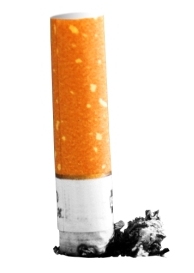Signs and Symptoms of Oral CancerNov 07 2013
 Each and every year, there are over 350,000 cases of new oral cancer cases diagnosed. And this number keeps increasing, even with continual medical advances. Oral cancer is a serious condition because it’s often discovered too late, and because persons who develop oral cancer are at a higher risk of developing a second form of cancer later in their life.
Each and every year, there are over 350,000 cases of new oral cancer cases diagnosed. And this number keeps increasing, even with continual medical advances. Oral cancer is a serious condition because it’s often discovered too late, and because persons who develop oral cancer are at a higher risk of developing a second form of cancer later in their life.
It is impossible for doctors to explain why one person gets oral cancer while another person does not given that the risk factors are the same for all people. The documented risk factors include:
- Tobacco use – with up to 75% out of all oral cancer patients being tobacco users
- Alcohol – heavy usage increases the risk of developing oral cancer
- Both combined – those who smoke and drink are 15 times more likely get sick with oral cancer
- Sunlight – prolonged UV exposure is a known skin and cancer risk factor
- Diet - Studies have shown that a diet low in fruits and vegetables may put you more at risk for oral cancer while a diet high in fruits and vegetables is known to offer increased protection against certain types of cancer.
What are the signs and symptoms of oral cancer?
Most of the time, the symptoms are painless or mimic other common sicknesses like canker sores. Since it’s difficult to know the difference between a regular canker sore and oral cancer, it’s important to have regular dental checkups. Dentists are able to recognize the changes in your mouth that can be hazardous to your health, and that you can’t really notice by yourself.
Here are some symptoms that should lead you to a dentist’s office immediately:
- Changes of color inside of the mouth, including red, discolored, smooth or white patches
- Crusty, rough and eroded spots that don’t heal
- A mass or lump that’s thickening inside your neck or mouth
- Sore lips or gums that don’t heal
- Bleeding in the mouth (that can also be a sign of gum disease)
- Difficulty in swallowing, speaking or chewing
- Loose teeth
- Hoarseness that doesn’t subside on its own after a couple of days
- Wart like masses
- Earaches
- Numbness in the oral or facial region
- And any oral change or soreness that doesn't go away or heal within two weeks
Your dentist is an important part of the fight against oral cancers of all types. Be sure to see him or her regularly, so that you can steer clear of all of the signs and symptoms.
Request Appointment